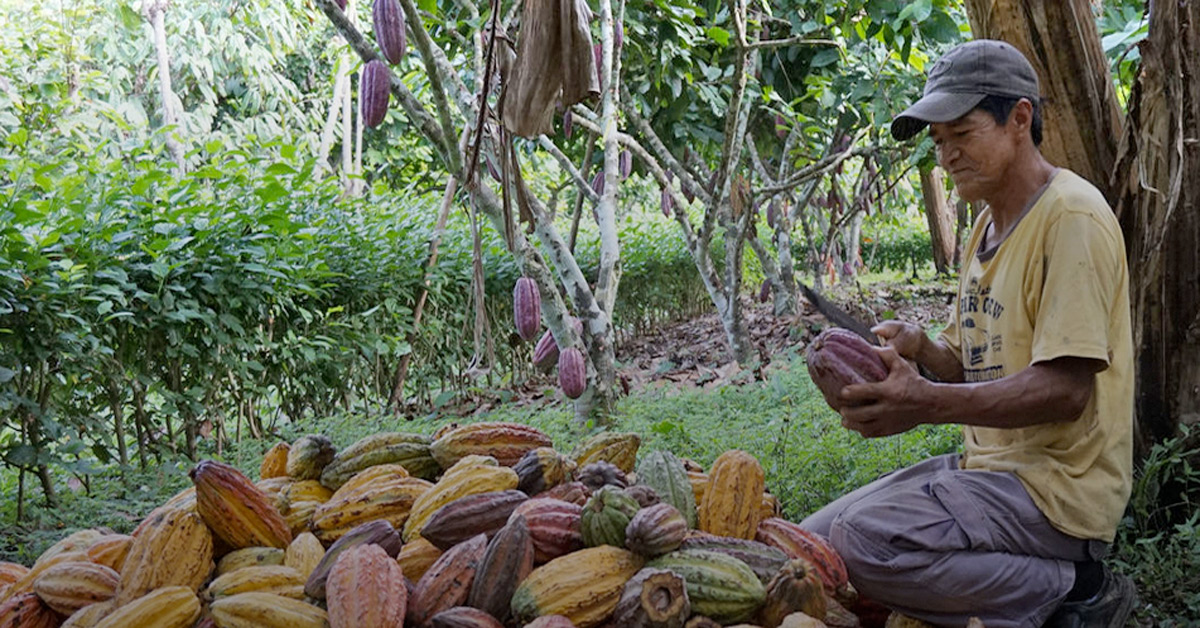
Profitability and productivity of organic farming can equal other systems – while increasing soil fertility, reducing pesticide use
Long-term comparative farming systems research by the Research Institute of Organic Agriculture (FiBL) and its partners in Kenya, India, and Bolivia reveals that the profitability and productivity of organic agriculture can equal other production systems. Furthermore, the results show that well-managed organic farming systems can increase soil fertility, reduce pesticide residues and enhance biodiversity.
The findings are presented in a report, “What is the contribution of organic agriculture to sustainable development? A synthesis of twelve years (2007-2019) of the long-term farming systems comparisons in the tropics (SysCom)”, which was launched at the External Cooperation InfoPoint conference of the European Commission on International Partnerships. Christina Blank from the Swiss Agency for Development and Cooperation (SDC) commmented, "The study provides important information to understand whether and how organic agriculture can contribute to the 2030 Agenda for Sustainable Development to end hunger, poverty and other deprivations."
In a presentation at the conference, Dr Gurbir Bhullar, country coordinator of SysCom India, explained: "We learned from the research in Kenya, India and Bolivia that organic yields can match those of conventional systems, yet vary depending on the crop and management practices. Thus organic systems could be managed successfully and profitably."
Dr Noah Adamtey, country coordinator of SysCom Kenya, said: “We found that organic systems can build up soil fertility over the long-term if managed well – that is especially for Africa key to increase productivity and enable food security.” Monika Schneider, coordinator of the project in Bolivia, added: "It was fascinating to see that the biodiversity in the organic agroforestry system was enhanced because the system offers suitable habitats and food sources for different bird species."
Beate Huber, program leader of SysCom and President of FiBL Europe, concluded: "Organic farming has proven to have the potential to contribute to the transformation of the food system also in low-income economies. Yet to exploit this huge opportunity, we have to invest in research and capacity building to close knowledge gaps as well as acknowledge with fair remuneration and a supportive policy and business environment the vital contribution of farmers to sustain public goods."
FiBL is one of the world’s leading institutes in the field of organic agriculture. It is located in Switzerland, Germany, Austria, France and is represented in Brussels, Belgium through FiBL Europe.
The new report contains references to peer-reviewed publications that give more details on the results obtained in the research.
About SysCom
FiBL launched the programme "Long-term farming systems comparisons in the tropics" (SysCom) together with partner institutions in 2007 to explore how organic agriculture can also produce profitably in tropical areas and what contribution it can make to sustainable development. While cotton, soybean and wheat cultivation are being studied in India, the focus in Kenya is on vegetable and maize cultivation. In Bolivia, cocoa production in monoculture and agroforestry systems are compared. Agronomic, economic and ecological parameters will be observed at all locations over several years. At the same time, research is conducted together with the farmers on locally adapted technologies.
Download the report:
https://www.fibl.org/en/info-centre/news/organic-agriculture-is-a-sustainable-alternative-for-developing-economies.html
Source: FiBL
https://www.fibl.org/en/info-centre/news/organic-agriculture-is-a-sustainable-alternative-for-developing-economies.html
Image: FiBL